Diecisiete personas fueron asesinadas y al menos otras quince resultaron heridas el pasado miércoles en la Escuela Secundaria Stoneman Douglas del condado de Broward, Florida, en uno de los ataques con armas de fuego en escuelas más trágicos de la historia estadounidense. Nuevas pruebas indican que el atacante, un joven de 19 años de edad ex estudiante de la escuela llamado Nikolas Cruz, tenía un rasgo en común con muchos otros hombres que perpetraron ataques masivos con armas de fuego: antecedentes de maltrato y amenazas a mujeres.
El jueves, miembros del grupo de odio del nacionalismo blanco Milicia de la República de Florida también declararon que el atacante era un miembro de esa organización y que se había entrenado con la milicia. Más tarde, sin embargo, el líder del grupo desmintió los dichos. Los ex compañeros de Cruz sí lo describieron como alguien políticamente extremo que manifestaba posturas racistas.
Para saber más de este tema, hablamos con George Ciccariello-Maher y Trevor Aaronson. Ciccariello-Maher es profesor visitante de Hemispheric Institute en la Universidad de New York y autor del libro “Decolonizing Dialectics” (La descolonización de la dialéctica). Aaronson es director ejecutivo y cofundador del Centro para un Periodismo de Investigación de Florida y escribe para el sitio de noticias The Intercept.
Transcripción: Esta transcripción es un borrador que puede estar sujeto a cambios.
AMY GOODMAN : El jueves el FBI confirmó que había recibido una advertencia sobre los comentarios en Internet de alguien que decía llamarse Nikolas Cruz. Se trata del nombre Nikolas escrito con K, N-I-K-O-L-A-S, algo inusual. El FBI fue notificado por un usuario de YouTube después de que Cruz dejara un comentario amenazante en un video. Este al agente especial del FBI Robert Lasky.
ROBERT LASKY : En 2017, el FBI recibió información sobre un comentario hecho en un canal del sitio YouTube. El comentario simplemente decía: “Voy a ser un tirador escolar profesional”. El comentario no incluía ninguna otra información que indique el tiempo, la ubicación o la verdadera identidad de la persona que hizo el comentario. El FBI realizó revisiones de bases de datos y chequeos pero no pudo identificar a la persona que realmente hizo el comentario.
AMY GOODMAN : Mientras tanto, han surgido nuevas pruebas que demuestran que el autor del tiroteo en la escuela de Florida, Nikolas Cruz, compartía un rasgo común con muchos otros hombres que han llevado a cabo tiroteos masivos: tenía un historial de abusos y amenazas hacia mujeres. Un estudiante le dijo al periódico The New York Times que Nikolas Cruz fue abusivo con su ex novia y que fue expulsado después de tener una pelea con el nuevo novio de ella. Otro estudiante le dijo a The New York Times que había sido amigo íntimo de Cruz hasta que Nikolas empezó a perseguir y amenazar a una amiga suya. Y el exprofesor de matemáticas de Cruz le dijo al Times que se sentía atraído por otra estudiante a la que había llegado a acosar.
Otros compañeros de la escuela también dijeron que Cruz era conocido por tener opiniones políticas extremas. El jueves, un grupo nacionalista blanco llamado La Milicia de la República de Florida afirmó que el autor del tiroteo era miembro del grupo y que se había entrenado con su milicia. Aunque después el líder del grupo negó esa afirmación. Los ex compañeros de clase de Cruz lo describieron como políticamente extremista. Un joven de 17 años llamado Ocean Parodie le dijo a The Daily Beast que Cruz “degradaba a las personas de religion islámica llamándolos terroristas”, además de afirmar que lo había visto vistiendo una gorra en apoyo a Trump.
Cruz una vez publicó una fotografía en Instagram usando una máscara y una gorra roja con la consigna “Make America Great Again” (Hagamos a EE.UU. grande de nuevo). CNN también transmitió imágenes que muestran a Cruz sin camisa, usando la misma gorra y disparando un arma en el patio de su casa. El video fue grabado por un vecino. Un joven de 16 años llamado Josh Charo que estuvo con Cruz en el JROTC, el programa de entrenamiento militar para niños de escuelas secundarias, dijo que Cruz solía expresar creencias racistas. Charo le dijo a The Daily Beast: “Siempre hablaba de cómo sentía que los blancos eran algo superiores que el resto, diciendo cosas como: ‘Mi gente está aquí industrializando el mundo y comenzando cosas nuevas, mientras tu gente [es decir, negros y latinos] simplemente están ocupando espacio’”. En un comentario que publicó en un video de YouTube, Nikolas Cruz también se refirió a los manifestantes antifascistas, conocidos como Antifa, y amenazó con asesinarlos en masa. Su comentario decía: “Voy a ver cómo caen las ovejas, f****** antifa, quiero matar a todos los que pueda”.
Nos acompañan ahora dos invitados. Desde Filadelfia, está con nosotros George Ciccariello-Maher, profesor visitante del Instituto Hemisférico de la Universidad de Nueva York, autor de “Decolonizing Dialectics” (Descolonizando la Dialéctica). Y desde Florida, nos acompaña Trevor Aaronson, el director ejecutivo y cofundador del Florida Center for Investigative Reporting, una organización de periodismo sin fines de lucro. Aaronson también colabora con The Intercept. Trevor, empecemos con usted. ¿Qué es lo que debemos entender en este momento sobre lo que ocurrió en Florida?
TREVOR AARONSON : Lo cierto es que hubiéramos tenido más información de la que hemos tenido hasta hoy si el nombre de Nikolas Cruz fuera Mohammed Mohammed.
En ese caso la pregunta hubieras sido: ¿Cuál fue la falla de inteligencia del FBI en esto?
Lo que quiero decir es que si recuerdas la respuesta de los medios y la protesta pública que siguió al tiroteo de Omar Mateen en Orlando, la gran pregunta entonces era: ¿cómo se nos pasó por alto esta amenaza? ¿Cómo pudo el FBI pasar esto por alto?
Y creo que lo que estamos viendo es que el FBI tiene ciertos mecanismos, a través de los procesos llamados evaluaciones de amenazas, para llevar a cabo investigaciones de amplio alcance sobre personas que puede representar una amenaza para la sociedad o la seguridad pública, y que en el caso de Omar Mateen vimos dos de esos mecanismos puestos en marcha porque alguien había mencionado al FBI que Omar Mateen conocía a los terroristas de la maratón de Boston.
Eso justificó una investigación en la cual el FBI entrevistó a Mateen y miró en detalle sus antecedentes. Por el contrario, en el caso de Nikolas Cruz, él hizo declaraciones amenazantes en Youtube. Dada la ortografía inusual de su nombre, y dado que él usó su nombre real en los comentarios de las redes sociales, es un poco difícil de creer que el FBI no logró encontrar algo de información en los registros, incluidos los registros de compra de armas. Eso les hubiera permitido al menos tener un motivo para continuar con la investigación.
Así que creo que lo que queda en este caso es realmente la pregunta de qué sabía el FBI y de si debería haber continuado con el caso de manera más agresiva. A partir de lo que hemos visto en otras investigaciones anteriores, creo que si ellos hubieran creído que Nikolas Cruz estaba involucrado en algún tipo de ideología radical, involucrando con el Islam, con ISIS o al-Qaeda, habrían hecho una investigación mucho más vigorosa de la que se hicieron, de acuerdo a lo que el FBI ha presentado hasta ahora sobre su investigación de Nikolas Cruz.
AMY GOODMAN : El sospechoso, Nikolas Cruz, según los informes, comentó en YouTube, “Voy a ser un tirador escolar profesional”, con su nombre, con la ortografía particular de su nombre. Y desde el año 2010, la policía local visitó 39 veces a su familia ante llamados por violencia doméstica o por tener a un individuo mentalmente enfermo en la casa, según CNN . Sus vecinos hablan de que la policía estaba constantemente en su casa. Eso es serio. Y, sin embargo, el FBI dice: “No podemos empezar una investigación con algo así”.
TREVOR AARONSON : Sí, creo que es importante recordar que después del 11 de septiembre de 2001 el gobierno creó una serie de entidades, o reforzó una serie de entidades, cuya labor era permitir un mayor intercambio de información e inteligencia entre los departamentos de policía y las agencias federales. Una gran parte de eso fue la creación de fuerzas de trabajo conjunto contra el terrorismo en todo el país. Y uno de los equipos más grandes de la nación está en el sur de Florida, y eso facilita el intercambio de información, de datos de inteligencia, entre la policía local y los oficiales de las fuerzas federales.
Hay una forma en la que se supone que el sistema debe funcionar. El sistema fue diseñado, en gran parte, para encontrar a los atacantes del siguiente 11-S, por así decirlo. Pero también fue diseñado para encontrar personas como Nikolas Cruz, quienes pueden ser una amenaza significativa a la seguridad pública. Y se supone que el sistema está diseñado para identificar amenazas, como el comentario de YouTube que hizo Cruz, con su propio nombre, sin usar un alias, y aparentemente sin usar una VPN para proteger su dirección IP.
Este tipo de información debería haberse procesado a través de algo así como estas JTTF (siglas de las fuerzas conjuntas contra el terrorismo), lo cual podría haberlo relacionado con las visitas de la policía a su casa en el condado de Broward. Creo que es importante reconocer eso. Por supuesto que es fácil juzgar a posteriori y decir: “Esto es lo que el FBI pasó por alto”. Pero también creo que es importante señalar que ese era realmente el trabajo del FBI . A partir del 11-S su objetivo principal ha sido encontrar amenazas antes de que sucedan.
Y eso no solo involucra a las personas que están inspirados por ISIS y al-Qaeda. También involucra a personas que están inspiradas por otras ideologías radicales, o quiénes son, francamente, como señaló Donald Trump, enfermos mentales. Es decir, el objetivo debe ser, sin importa cuál es la ideología o el propósito, que si alguien representa una amenaza significativa, se deben poner en marcha estos procesos de intercambio de información que se supone que pueden ayudar al FBI a identificar a la persona antes de que cometa un crimen.
AMY GOODMAN : Quiero pasar por un momento a un invitado que tuvimos recientemente. Poco después del tiroteo en el club nocturno Pulse en Orlando, en junio de 2016, no muy lejos de donde el tiroteo de Parkland acaba de suceder. Democracy Now! habló con Soraya Chemaly, y le pregunté sobre esta conexión que usualmente es pasada por alto entre la violencia doméstica y los tiroteos masivos.
SORAYA CHEMALY : Lo que podemos ver repetidamente en estos casos de violencia masiva, cuando cuatro o más personas son asesinadas, es que el perpetrador tenía antecedentes de haber atacado a un compañero íntimo, a una pareja. Sucedió en la masacre de Boston. Sucedió en Sandy Hook.
Y entonces, para muchos de nosotros, cuando ocurren estos sucesos de alguna manera sabes que una información así va a salir a la luz. Así que nos preguntamos: ¿Por qué es que este tipo de comportamiento no es visto como un elemento esencial para comprender la mortalidad en la violencia pública? Si tienes una persona que vive en tu comunidad que es violentamente abusiva hacia su familia, eso es una preocupación para la comunidad en general.
En el caso de Orlando, parece que no hay ningún reporte hecho a la policía, algo que a menudo ocurre, lo cual significa que como sociedad estamos inhibidos de tomar medidas adicionales. Entonces, el atacante, por ejemplo, fue completamente capaz de ir y obtener armas legalmente. Tenemos una ley federal que debería haber prohibido eso siendo que, por ejemplo, él había tenido una orden de alejamiento en su contra. Pero más de 50 estados no tienen leyes que respalden eso.
AMY GOODMAN : Esa era la periodista Soraya Chemaly. Y nuevamente, solo para reiterar, un estudiante le dijo a The New York Times que Nikolas Cruz fue abusivo con su ex novia y que fue expulsado después de tener una pelea con el nuevo novio de ella. Otro estudiante le dijo al Times que había sido amigo íntimo de Cruz hasta que comenzó a perseguir y amenazar a una amiga suya. Un profesor de matemáticas dijo que estaba molestando a otra alumna hasta el punto de acosarla. George Ciccariello-Maher, dénos su opinión.
GEORGE CICCARIELLO – MAHER : Lo que sabemos es que este tirador, quien es aparentemente un supremacista blanco, también ha sido violento con las mujeres. Esto es algo que se sabía. Y no es una sorpresa. Estas cosas van de la mano porque la supremacía blanca y el patriarcado son estructuras violentas de poder que llevan a responder a una frustración u obstáculo con violencia. Y sin embargo, cada vez que hablamos de esto en los medios, una y otra vez, la situación es tratada como si fuera la primera vez que ocurre.
Y todos los datos y la información que tenemos a nuestra disposición nos están diciendo claramente que eso es lo que ocurre. Por ejemplo, se habló de este tema, de esa conexión, después del tiroteo en Las Vegas, cuando se dio a conocer que el tirador había sido, en público, violentamente agresivo hacia su propia pareja. Esto es algo que sucede repetidamente en casos como este. Y es realmente frustrante tener que decir una y otra vez que esta correlación existe, que esa violencia hacia las mujeres, y en ese caso también violencia hacia los animales, ese tipo de respuestas violentas y de agresiones a lo largo de la vida de la persona, tienen algo que ver con esos sentimientos de dominación expresados en lo que es aparentemente una ideología de supremacía blanca.
AMY GOODMAN : Para hablar más al respecto del tema de la conexión con la ideología de la supremacía blanca volvamos a escuchar a Trevor, y luego seguiremos con George. Trevor Aaronson, hablando de esta conexión, ¿hay una persona de un grupo de supremacía blanca de Florida que dijo que Nikolas Cruz se entrenó con ellos, pero ahora se retractó?
TREVOR AARONSON : Sí. Inicialmente, teníamos algunos informes que surgieron inicialmente de una investigación que hizo la Liga Anti-Difamación y que vinculaba a Nikolas Cruz a un grupo con base en Tallahassee llamado la República de Florida, un grupo nacionalista blanco que dice que está tratando de crear un estado de Florida solo para blancos. Y lo que dijo el líder de ese grupo, Jacob Jered, fue que Nikolas Cruz se había entrenado con ellos y que era un miembro de su grupo. Y, de hecho, en una entrevista posterior con The Daily Beast, Jacob Jered dijo que ellos habían comprado un arma para él y también que se entrenó con ellos en Tallahassee.
Luego, en Gab, que es una plataforma de redes sociales similar a Twitter hecha para proporcionar un hogar a los supremacistas blancos que han sido expulsados de Twitter por sus puntos de vista odiosos, Jacob Jered, el líder de la República de Florida, se desdijo. Básicamente, él indicó: “Bueno, tenemos varias personas llamadas Nikolas, y me confundí”. Entonces, es difícil saber si Jacob Jered solo estaba usando este caso como una estrategia para dar a conocer el nombre de su organización. Y si ese es el caso, ciertamente funcionó. También es posible que Nikolas Cruz tuviera algunas ideas a favor de la supremacía blanca.
Las fuentes en este momento son un poco vacilantes y es difícil de saberlo con precisión. Basándome en algunos de los comentarios que hizo contra Antifa, por ejemplo, se puede decir que ciertamente tenía alguna ideología política de derecha, pero al mismo tiempo pienso que no es del todo claro si él fue realmente parte de un grupo de supremacía blanca o si se identificaba con una ideología de supremacía blanca.
AMY GOODMAN : Y, por supuesto, tienes a sus amigos afirmando que era islamofóbico, y que él decía que los blancos eran superiores a los negros y los latinos. Continuemos con este tema de la conexión entre este tipo de racismo y su misoginia.
TREVOR AARONSON : Sí, volvamos a ese punto que estaba señalando antes acerca de cómo el sistema de evaluación de amenazas del FBI está diseñado para establecer este tipo de señales de advertencia y reunirlas y armar un perfil de quién podría ser peligroso, y luego asignar recursos en consecuencia, ya sea para ir a la casa de Nikolas Cruz, entrevistarlo y tal vez asustarlo directamente, o para construir un caso, reunir toda la información que podría darte razones para sospechar que podría ser peligros en un futuro.
Sin duda, los comentarios que hizo en YouTube y sin duda el tipo de comentarios racistas que él había hecho, en una evaluación de amenazas, por ejemplo, podría llevar a entrevistar estudiantes y amigos. Ese es el tipo de proceso podría haber desenterrado las cosas que los medios de comunicación ya han desenterrado, que es que Nikolas Cruz parecía tener algunas creencias de derecha que pueden haberlo llevado a tomar acciones violentas. Si el FBI hubiera investigado esto, como los ves investigar casos de posible extremismo islámico, creo que es razonable pensar que lo que el FBI hubiera sabido sobre Nikolas Cruz hubiera sido mucho más de lo que ellos sabían cuando ocurrieron los disparos. Lo que básicamente sabían sobre Nikolas Cruz en el momento del ataque es muy poco, según el FBI ha admitido, o tal vez nada.
AMY GOODMAN : Nikolas Cruz estuvo involucrado con JROTC (los entrenamientos militares para niños en escuelas), George Ciccariello-Maher, ¿podría hablar sobre sus preocupaciones en cuanto a eso? También una de las mujeres jóvenes que fue asesinada había sido miembro de JROTC.
GEORGE CICCARIELLO – MAHER : Creo que deberíamos estar muy atentos a todos estos factores. Es difícil enfocarse en su participación en un programa de entrenamiento militar que en realidad está muy extendido en el país. Sin embargo, sí debemos ser conscientes, en realidad, de que estos son programas de entrenamiento militar para un gobierno de Estados Unidos que está involucrado en la violencia masiva en el exterior. Entonces, no siempre deberíamos sorprendernos de ver como esa violencia se ve reflejada en nuestro país.
Creo que en este caso deberíamos enfocarnos en cuanto a su participación en la organización de la supremacía blanca. Sé que hay muchos datos yendo y viniendo al respecto. No me sorprendería que el fundador de esta organización nacionalista blanca se retractara de sus comentarios por miedo al escrutinio público que iba a recibir. Como yo lo entiendo, también fue confirmado por ABC , a partir de testimonios de varios compañeros de clase, que él había estado involucrado en este grupo. Y creo que debemos ser conscientes de que el año pasado hemos visto un aumento dramático en las expresiones públicas de supremacía blanca, de violencia nacionalista blanca.
Sabemos que estas son organizaciones violentas. Sabemos que están generando violencia. Lo hemos visto en Charlottesville. Lo hemos visto cuando los partidarios de Milo Yiannopoulos abrieron fuego contra sus opositores, entre otros casos. Y partidarios de Richard Spencer han alentado la violencia en las protestas. Al mismo tiempo, nos dicen que estas son solo ideas en el gran mercado de las ideas para ser debatidas y discutidas. Pero lo que necesitamos es darnos cuenta de que uno no puede discutir la supremacía blanca. No la pones en debate. La destruyes. La desarmas. Y eso es algo que tenemos que hacer en un nivel mucho más amplio, mientras estamos tratando de lidiar con lo que está pasando en esta instancia, porque vemos que hay gente que se está volviendo radical.
Por supuesto, si fueran, por algún caso, musulmanes, la pregunta sobre dónde adoptaron esas ideas radicales se vuelve un meme, algo viral, y sin embargo, no nos hacemos esta pregunta cuando se trata de estos jóvenes blancos radicalizados, quiénes están involucrados en esta violencia masiva, están en grupos de discusión. Si es verdad que Cruz estaba vinculado con ideas de supremacía blanca, se trata del segundo tiroteo escolar de extrema derecha en dos meses. El último fue en Nuevo México, perpetrado por alguien que participó activamente en The Daily Stormer, uno de los sitios web de extrema derecha y antisemita más violentos.
Esta relación resulta directa. Sin embargo, Trump eliminó casi todo el escrutinio o el control hacia los grupos de supremacía blanca. Incluso Obama había estado recortando el financiamiento para este fin. Entonces, sabemos que el gobierno no tiene ningún interés en enjuiciar y socavar las organizaciones de supremacía blanca, y que las organizaciones en el terreno van a necesitar hacer eso ellos mismos.
AMY GOODMAN : Bueno, vamos a terminar aquí. Quiero agradecerles a los dos por estar con nosotros. A Trevor Aaronson, que nos acompañó desde San Petersburgo, y trabaja en Center for Investigative Reporting de Florida y en The Intercept. Y a George Ciccariello-Maher, académico visitante en el Instituto Hemisférico de la Universidad de Nueva York, que nos habló desde Filadelfia. Esto es Democracy Now!
Fuente: http://www.democracynow.org/es/2018/2/16/white_supremacy_patriarchy_and_guns_fl
Fuente: https://www.rebelion.org/noticia.php?id=238317
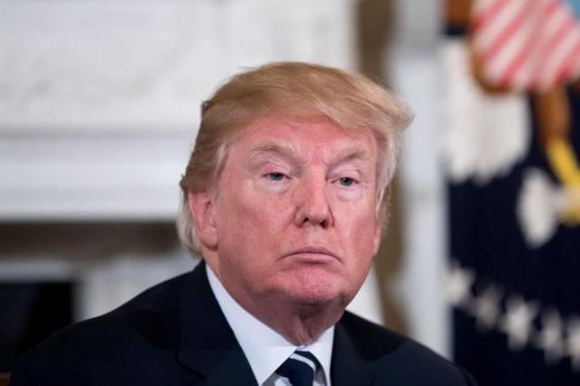
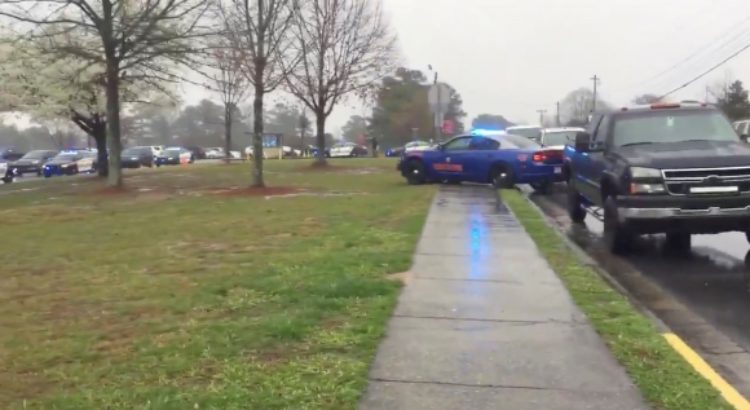
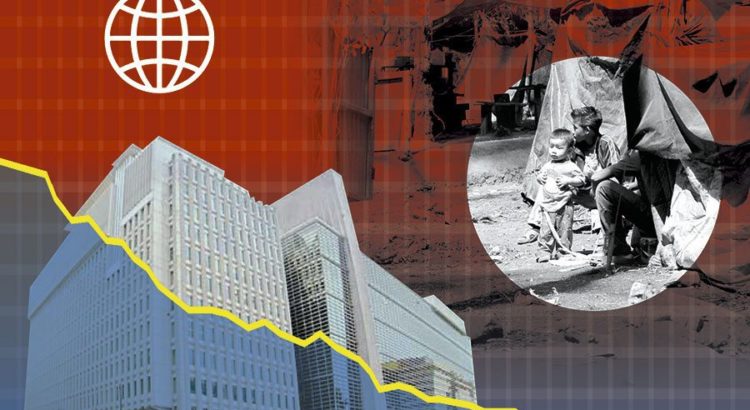

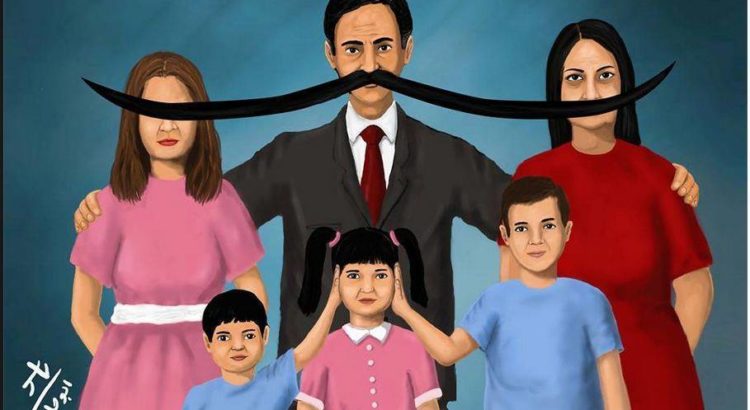

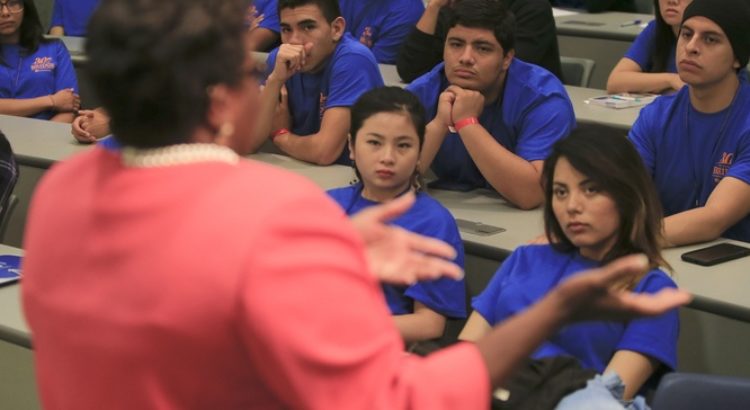







 Users Today : 16
Users Today : 16 Total Users : 35460601
Total Users : 35460601 Views Today : 40
Views Today : 40 Total views : 3419589
Total views : 3419589